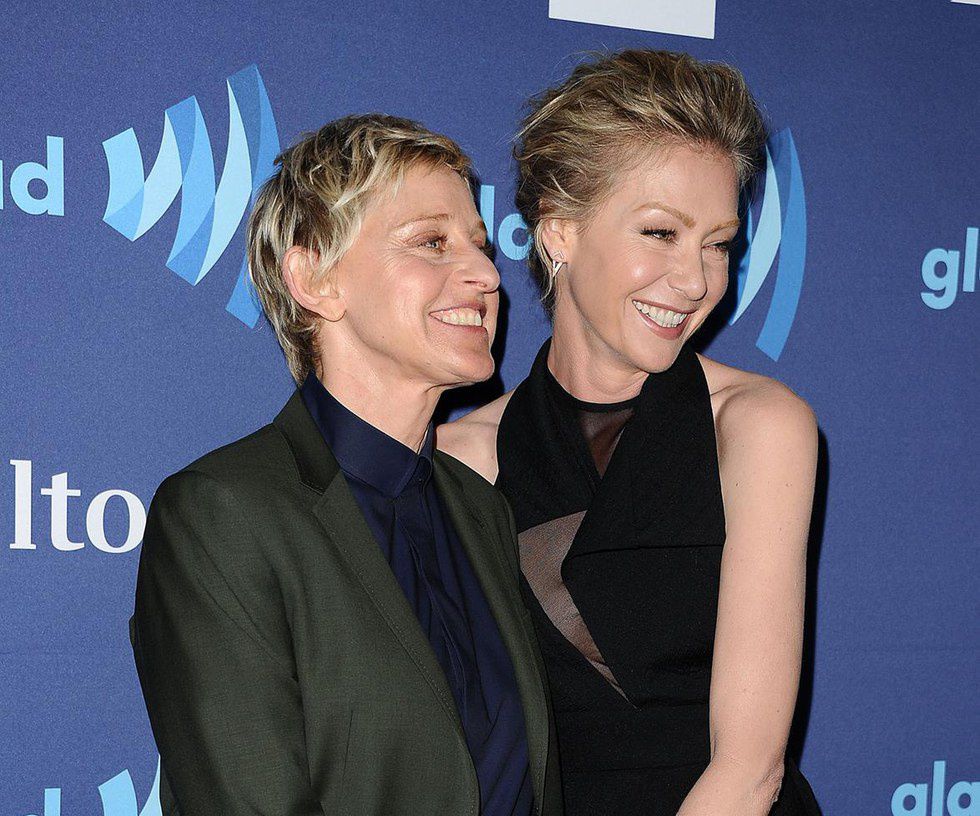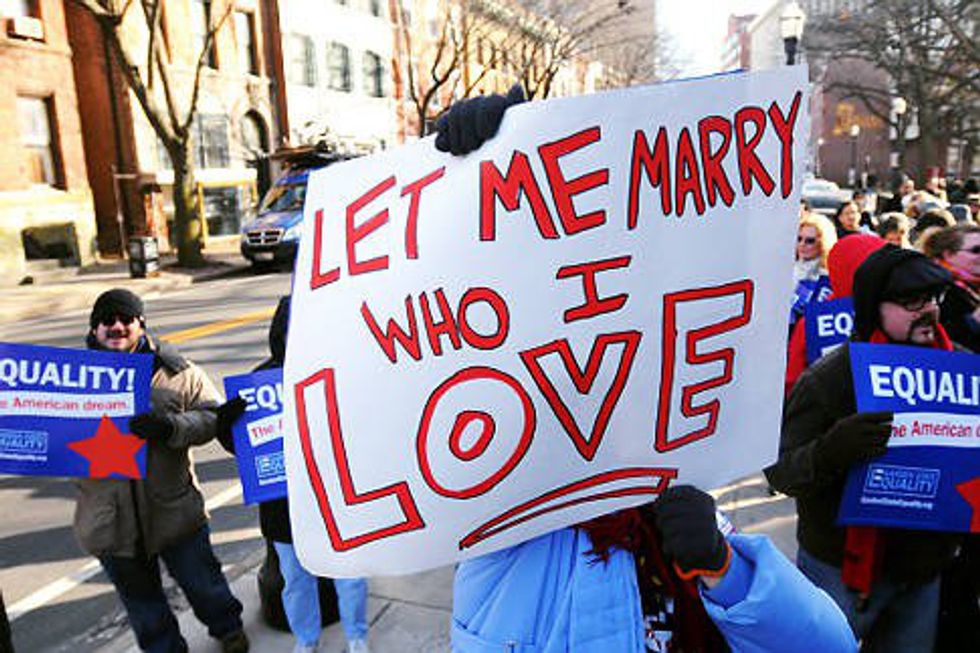Australia is far from backward. We are a country of healthcare, safety and an array of cultures. We are advanced in our technology, privacy laws, gun control laws, and security systems; yet, it seems as though we are still lagging behind other countries in our system of acceptance.
"The Voice" contestant Alfie Arcuri caught the attention of thousands of fans with his incredible voice and ravishingly good looks.
Alfie Arcuri's captivating blind audition:
After battling it out to win the competition, it became evident that Alfie had already lived through one of the biggest battles.
In an interview with TV Week, the 27-year-old revealed that he only gained the courage to come out as gay to his family three years ago.
The Sydney-based architect said for years he "tried so hard to think I wasn't gay" and he believed that "there was something wrong" with him at the time.
"I prepared myself to be alone as an adult," Alfie told the publication. "I just couldn't imagine my family accepting me as being gay."
Australians have come a long way in our attitudes towards gay people, but have we come far enough?
It is clear that the vast majority of us support marriage equality and believe that same-sex couples should be able to adopt.
But although we are accepting in many ways, as many as one in five Australians still believe homosexuality is “immoral.”
Michele Levine, CEO at Roy Morgan Research has been carrying out research on social attitudes for 20 years. Levine admitted the results were worrying.
“Twenty percent think it’s immoral, obscene, a sin,” she told news.com.au. “It shows there’s still a group who are quite homophobic."
Small groups attribute their disapproval to their religion; while the most supportive are young people and more educated people.
The forbidden gay marriage in Australia affects more individuals than you may think. Levine’s research continues to disclose that 6.5 percent or one in 15 people in their 20s identify themselves as homosexual.
It is ludicrous for our country to be so illiberal and intolerant while our homeland England and neighbors in New Zealand both had legal nationwide same-sex marriage approved in 2013.
Despite being a biological phenomenon, being gay has become a political debate, clearly divided along party lines.
Unfortunately same-sex marriage does not appear to be imminent in our near future, as while Levine highlights that "The Greens are all in favor of gay marriage and adoption," and "The Labor Party is mostly supportive… The Liberals are divided."
Just 49.4 percent of the leading party supports gay adoption. While many believe that Malcolm Turnbull may be open minded, he also has to consider the attitudes of his party.
The Liberal Party has proposed a plebiscite: which is a direct public vote to gauge a nationwide stance on a political issue. But Australian Marriage Equality.org stands in opposition, highlighting that "A plebiscite is a wrong way to go."
The organization outlines that in 2013 the High Court found that the definition of "marriage" in the Constitution includes same-sex unions. This made it clear that the Federal Parliament actually has the power to enact marriage equality without a plebiscite.
Not only will it cost us around $105 million AUD to implement, gather and count up votes, the plebiscite will take us upon a completely unnecessary and fruitless journey towards further indecision. We already know that 72 percent of Australians support marriage equality, according to the Liberal Party’s research company Crosby/Textor.
The parliament could legislate for same-sex marriage immediately and without any issue, if they wished. So what is really stopping them?
Unfortunately, the Liberal Party is strongly influenced by a few select members of extremely conservative Christian power brokers. In reference to religion, these bureaucrats only represent the minority yet have a large say over our liberal policies.
A plebiscite will only serve to delay marriage equality -- in fact, many see it as an escape route for the Liberal Party to avoid legislation of same-sex marriage altogether. At the earliest, it will be 2017 before one is conducted and implemented. "The last time Australia had a plebiscite was in 1977 -- on the question of the national anthem -- it took seven years to implement the result."
The organization stresses that even if Australians overwhelmingly vote for marriage equality, the decision will still lie in the hands of politicians to actually change the law.
Unlike a referendum, governments are not bound by the result of a plebiscite. The same groups that oppose marriage equality now will continue to oppose it even after the results are congregated.
We are living in a time of acceptance, and it is important that people can confidently and legally come to terms with who they are.
Nobody deserves to live in the fear and self-denial that our winner of "The Voice" 2016 experienced.
We can only hope that acceptance and same-sex marriage will soon become a part of our history.





















